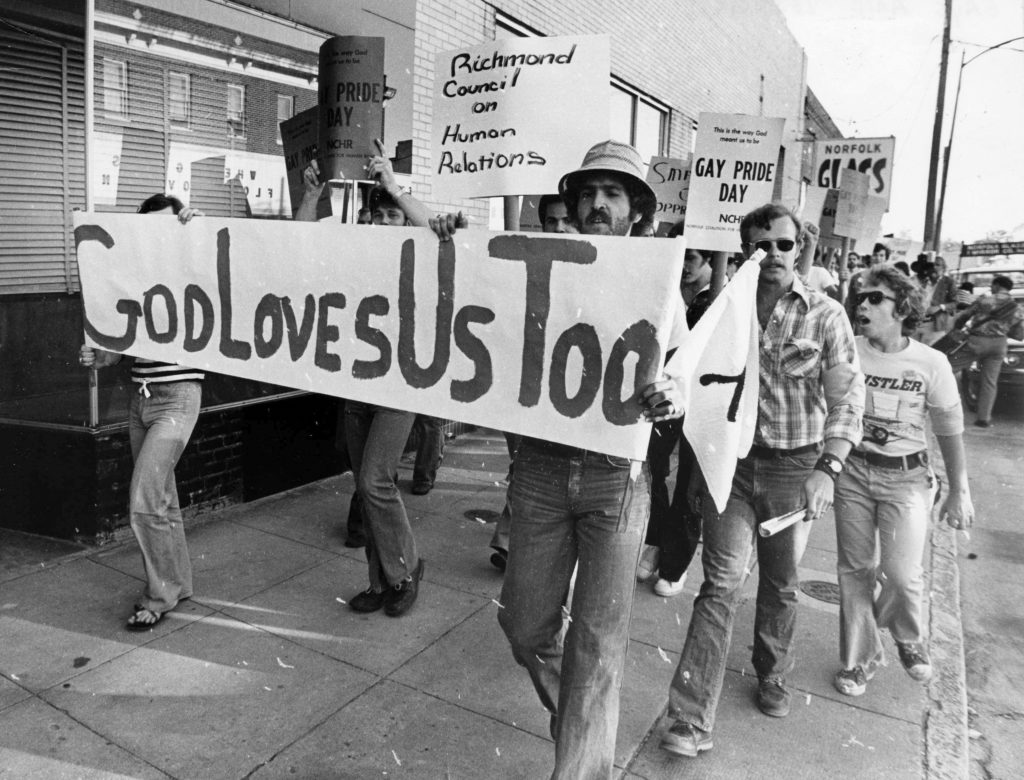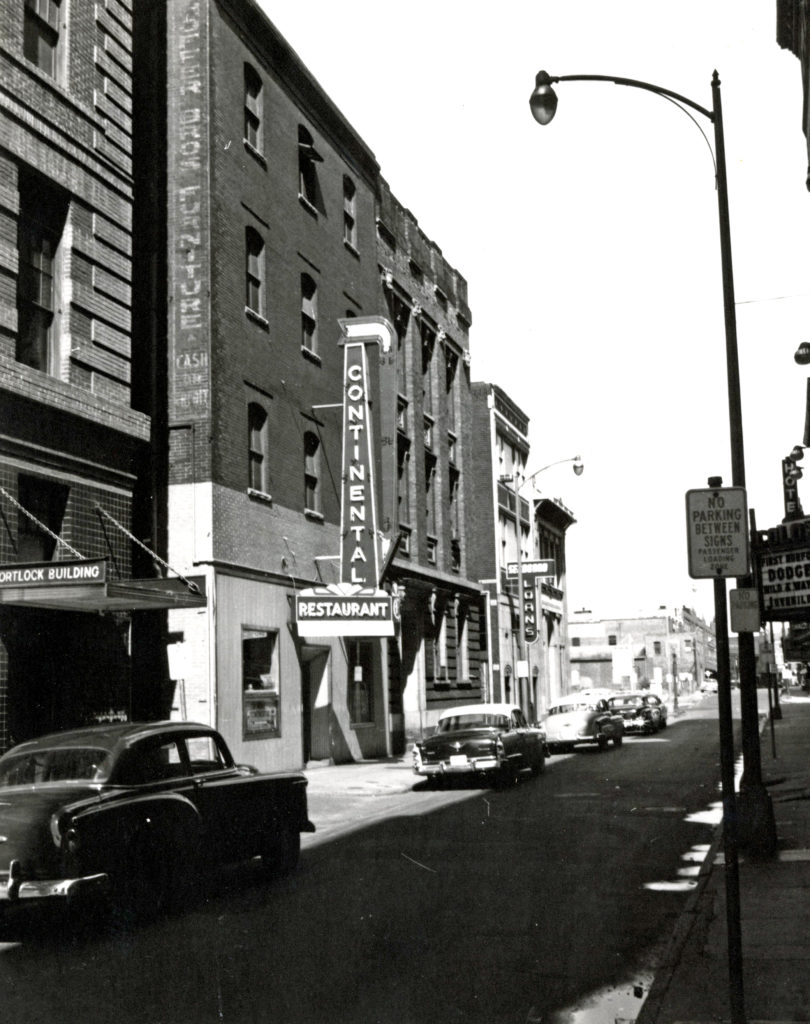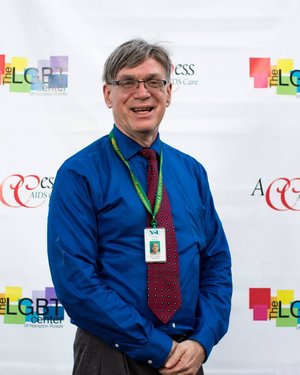Norfolk’s Queer History

LGBT history isn’t a topic that gets much conversation, let alone bylines in local media or a chapter in your social studies class. Knowing our queer history, if we do at all, is usually something that’s only passed on verbally by each queer generation. The unfortunate truth is that most LGBTQ history is lost.
Norfolk, and Hampton Roads, however, is lucky to have excellent local historians like Dr. Charles Ford who is a history professor at Norfolk State University. Since moving here over 30 years ago, Dr. Ford has taken a particular interest in understanding and uncovering LGBTQ figures that have helped shape Hampton Roads (many of them closted because homosexuality was both illegal and morally unacceptable).
Dr. Ford has spent his life tracking down rumors, checking sources like personal letters, “criminal” records, diaries, newspapers and any other historically significant resources he can get his hands on to paint a picture of what LGBTQ life in Hampton Roads was like since settlers arrived back in 1607. His work resulted in LGBT Hampton Roads, a book that explores LGBTQ life in our region, complete with images, from the 1600s to today.
Over the next several month, Dr. Ford will be guest blogging for us, giving us an idea of what life was like for our queer ancestors of the distant past, and the not so distant past.
LGBTQ Hampton Roads in the 1970s
Harassment and Raids
Stonewall-type raids continued in Norfolk long after the famous rebellion against oppression in New York City (1969). In the late 1970s, the police here frequently justified their raids as a preemptive strike against criminal activity — particularly against a perceived wave of alleged theft and assaults committed by men dressed in women’s clothing. In other words, these raids were for our own community’s “benefit” in the police’s public relations spin-cycle.
For example, on a random Saturday night in January 1978, Officer Russell James Volk and four of his vice investigator colleagues arrived at the Continental Lounge on Tazewell Street in downtown Norfolk. The Continental had been an internationally-known jazz club in the 1950s, but the waning popularity of jazz and the specter of white flight from the inner city had led to its new format as a gay male bar by the 1970s.

Gay liberation had reached Norfolk, and the Continental was one of several establishments that catered to gay men in the rather cramped area between Granby and Boush Streets on the west side of downtown, connected to each other by alleys. Accordingly, Volk and his men had come to the right place yet for all of the wrong reasons. As the evening progressed, Volk and one of his detectives played pool and drank beer in plain clothes, while the two others mingled, along with yet another undercover cop, and alongside customers who were interested in the disco dancing that was so popular at that time. There, the police apparently witnessed same-sex dancing with a bit of hand holding, hugging, and kissing thrown in; disco dancing had less physical contact between the dancers than with formal ballroom or slow dancing — and the men were obviously not having sex of any sort on the floor or in the bathrooms. So, as one of the circuit judges remarked right before dismissing the charges against one defendant, “they could have been doing this anywhere.”
Volk was not amused, though, and had four more police officers join them at the bar to end the party for the 40-50 patrons present. Around midnight, he had one of the arriving officers to shut off the door to allow no entry in or out. Seven men were arrested, seemingly at random, allowing many of the same-sex disco dancers off the hook. All of those detained were arrested for the misdemeanor of frequenting a bawdy house; one was additionally charged with prostitution and another was charged with giving false information to the police.
None of the arrested fit the purported police targets of men in drag working as prostitutes; indeed, the one person arrested for prostitution was not a prostitute but someone who had admitted that they were gay to the undercover cop. At any rate, the two with the additional charges did not challenge their arrests and ended up paying a small fine and doing up to 20 days in jail each. The other five men did challenge their arrests and had them all dismissed due to a lack of evidence. Harassment, thus, was the real motive behind this incident and other arbitrary enforcement of antiquated code; the police were creating the “crimes” that they wanted to control in order to punish what they considered disgusting sexual behaviors.

Charles H. Ford, Ph.D., is a professor of History at Norfolk State University (NSU). Ford has become a nationally-known, well-published expert on public school desegregation in Virginia. He also serves as a trustee of the Norfolk Public Library system, and was formerly the President of the Tidewater AIDS Crisis Taskforce.
Connect with us!
Twitter.com/LGBTLifeCenter
Facebook.com/LGBTLifeCenter
Instagram.com/LGBTLifeCenter
Leave a Reply